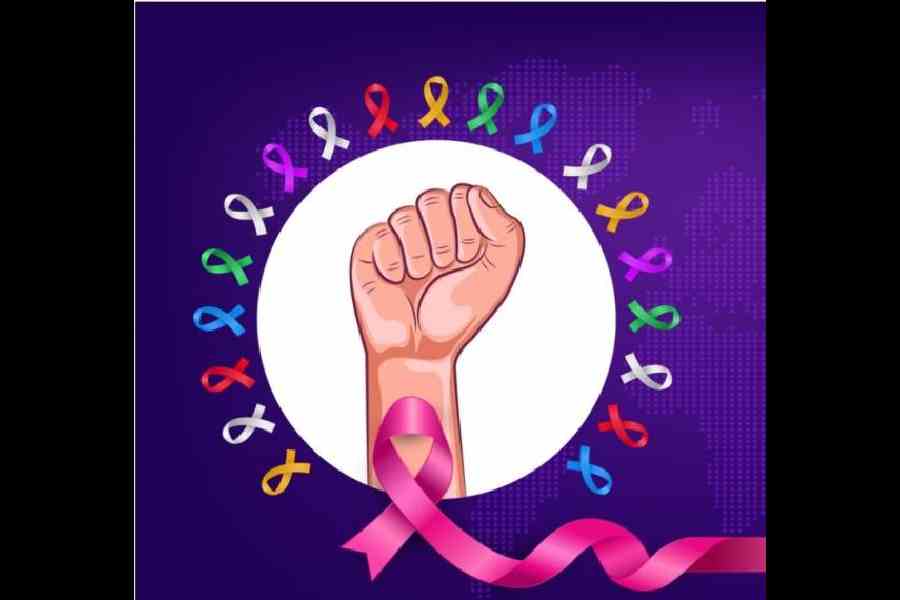One in nine people in India is likely to be diagnosed with cancer. The incidence of cancer in India is lower compared to Western countries (one in three develop cancer), possibly due to factors like lower levels of screening, non-acceptance of hospital treatment and dietary differences. Indians, even non-vegetarians, eat less meat than our Western counterparts; many do not eat meat daily and eat very little or no processed red meat like sausages and pepperoni. (Much of this is changing now with the new fast-food pizza culture setting in.)
What exactly is cancer? It is the uncontrolled proliferation of certain types of cells in the body, leading to faster cell growth than cell death. The fast-growing cells often do not grow to their full potential and have immature DNA and nuclei. Even if the cancer initially starts in a part of an organ, the cells burst through the capsule. Cancer cells can spread throughout the body via the lymphatic system and blood vessels. They attach themselves to various sites and grow there.
Cancer cells use up a lot of glucose to grow. That is why one of the signs of cancer, even if there are no visible tumours, is unexplained loss of weight. This does not mean that by not eating sugar, you can reduce your body’s sugar levels and prevent the cancer cells from growing.
Although cancer can occur at a young age, most cancers appear after the age of 50 years. Increasing age is a risk factor for cancer, which cannot be modified. This is because our cells mutate or develop damage as we age, and these mutilated cells can proliferate, causing cancer.
Our inherited genes are also another unchangeable risk factor. Some cancers appear in families through many generations. Even if you have a family history of cancer, you can try to modify your environment and attempt to delay the expression of these faulty genes.
Some factors can be voluntarily changed. We can maintain an ideal body weight. Obesity causes an increase in visceral fat around the major abdominal organs. These fat cells increase inflammation around these organs. This causes cell changes and mutations, leading to uncontrolled proliferation and cancer. They also increase insulin resistance and estrogen levels, all of which predispose to cancer.
We can stop using chemicals linked with cancer. Permanent hair dyes and hair straightening chemicals are absorbed through the skin and, therefore, are banned in many countries. The nicotine in tobacco, whether smoked or chewed, causes changes and mutations in cells. Alcohol is not safe if consumed in excess, which means more than one drink a day in women and two drinks a day in men. Colours added to food may not be “health grade” as these are expensive. It is cheaper to use attractive red and yellow dyes, which are cancer-causing.
We can take positive action. Adding spices like turmeric, black cumin, ginger, garlic, saffron, pepper, cloves, cardamom and cinnamon to our food helps as they all have cancer-fighting properties, and they reduce inflammation in the body.
Diet cannot cure cancer, but eating healthy with four to six helpings of coloured fruits and vegetables protects against cancer mutation of cells.
Physical activity like walking, running, dancing, biking, swimming, and engaging in sports activities that use 150 minutes a week is associated with a lower risk of oesophagal, stomach, colon, breast, uterus, bladder and kidney cancer. This only requires motivation.
Immunisation can prevent two types of cancers. HPV vaccine can prevent cervical cancer. The hepatitis B vaccine can prevent some types of liver cancer. These are the only two cancers preventable by timely and adequate immunisation. Immunise yourself and your family today.











